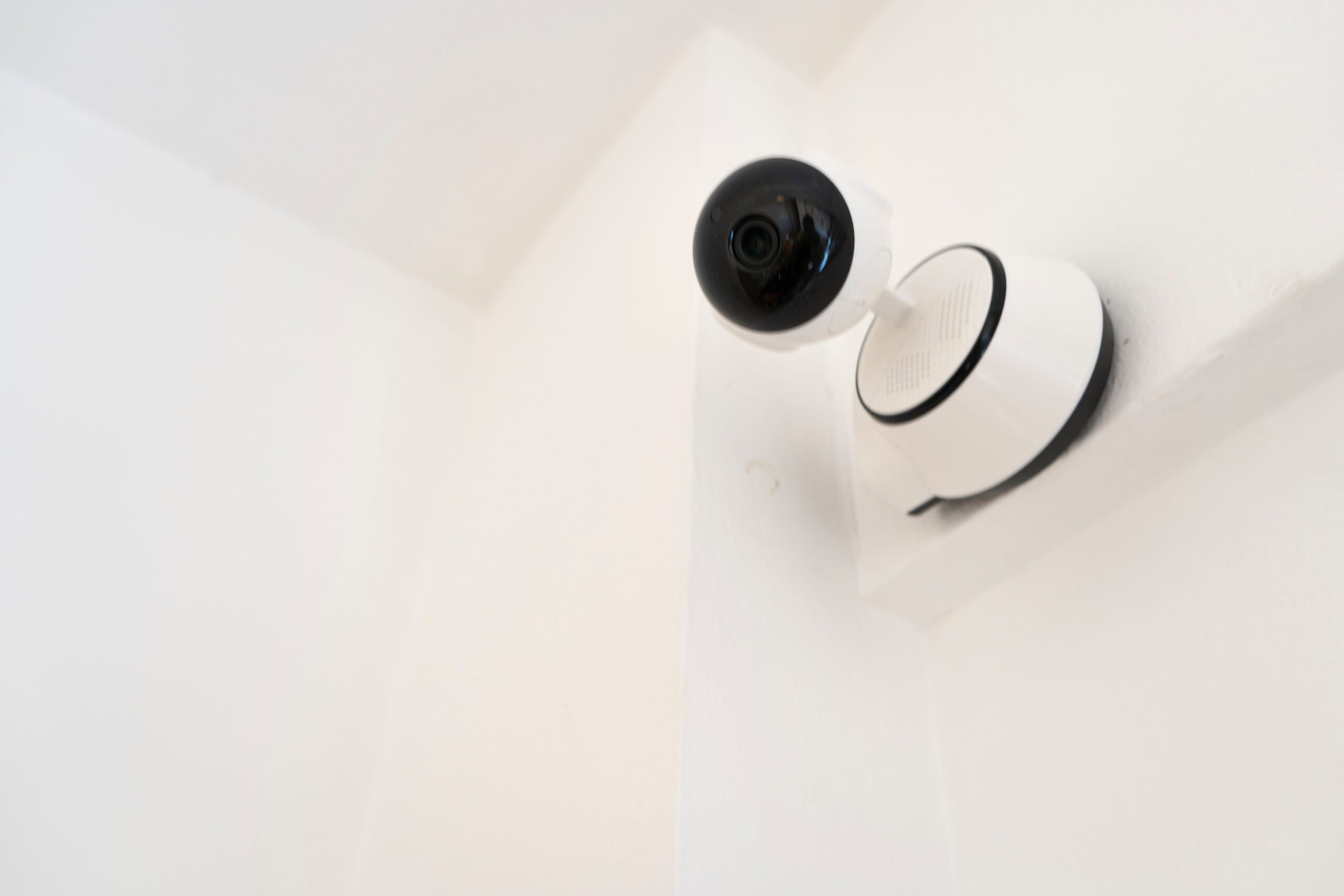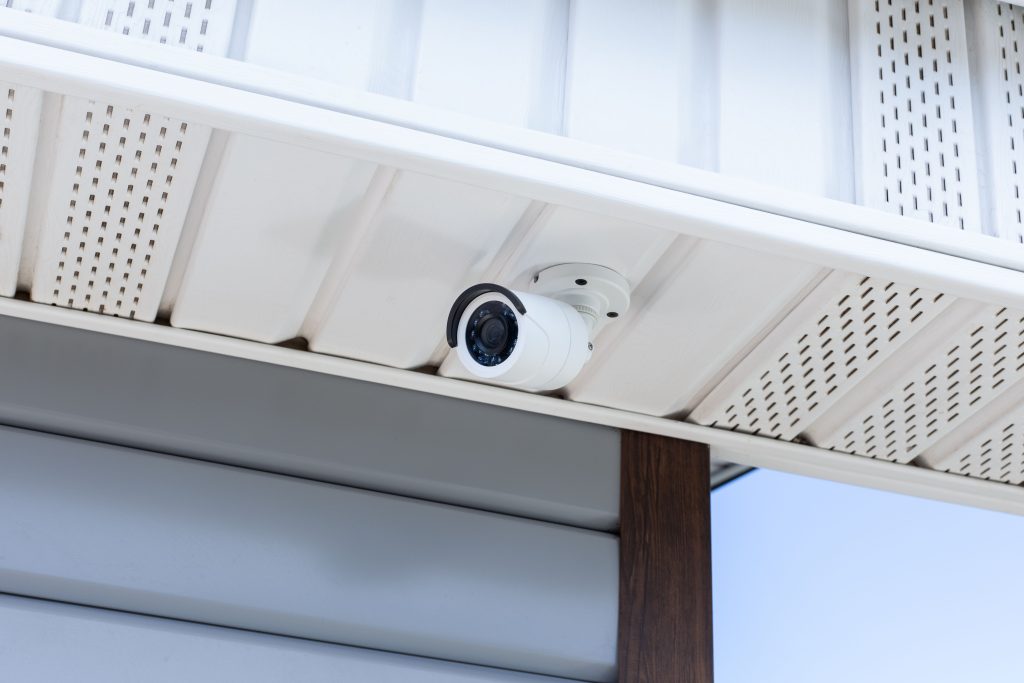Do Home Security Cameras Delete Footage?

Home security cameras are more than just a fancy way to keep an eye on your home. They’re like little sentinels, always watching. Did you know that many home security cameras automatically erase their oldest footage after just 14 to 30 days? That’s just enough time to catch a glimpse of that surprise visit from Aunt Edna or the neighbor’s dog digging in your garden.
But what happens to this footage after it’s deleted? It’s a question that many homeowners probably have. Let’s take a closer look at how these cameras keep or delete footage(1).
Key Takeaway
- Home security cameras often delete footage automatically after a set period.
- Users can manually delete specific clips if needed.
- Storage options, like SD cards or cloud services, influence how long footage lasts.
Understanding Automatic Deletion of Footage
Home security cameras are smart little gadgets. They watch over our homes while we go about our busy lives. But here’s something interesting, With Shielded Residence’s systems, you can customise how and when footage is overwritten, giving you more control over what’s kept and what’s erased.
Plus, our cloud services offer longer retention options to store essential recordings for weeks or even months. You’ve got to toss out the old stuff to keep everything tidy.
When a camera uses an SD card, it might overwrite the oldest video clips. This is important because if you don’t have a large storage space, you might miss important footage. Imagine you’ve got a fancy camera, but it only keeps your videos for a short time. That could be a real bummer.
- Time-Based Overwriting: Most camera systems start deleting after 14 to 30 days. If something exciting happens in your neighbourhood, you could miss the action if you don’t check regularly.
- Cloud Storage Policies: For those cameras that save footage online, the rules can be a bit different. Some online services might delete footage after just a few days. Others might keep it for a whole year. It all depends on the plan you choose.
I remember setting up my first security camera. I thought it would keep all my footage forever. Turns out, I had to stay on top of those settings or I’d lose some hilarious videos of my cat chasing its tail. What a sight!
Manual Deletion of Footage
Now, sometimes, you might want to get rid of certain clips. Maybe there’s that funny moment when your friend tried to dance at a party and fell over. Or maybe your dog barked at nothing for hours. Shielded Residence’s cameras come with user-friendly interfaces, making it simple to review, keep, or delete clips directly through our app. Whether it’s clearing space or saving a funny moment, we make it easy to manage your footage.
- Using an SD Card: If your camera uses an SD card, you can take it out and plug it into a computer. This way, you can delete specific clips you don’t want to keep. But be careful! If you format the whole card, you might lose everything, and that would be a shame.
- DVR/NVR Systems: If you have a DVR or NVR system, it’s like having a remote control for your footage. You can log in and pick exactly which clips to delete. It’s as if you’re choosing your favourite dessert from a menu. You only want the best bits, right?
- PC Storage: If your recordings are saved on a computer, it’s super easy. Just navigate through your folders and delete the videos you don’t want. It’s just like cleaning out your closet—easy peasy!
I once had to delete a bunch of videos of my dog barking at nothing. They were cute, sure, but after a while, I figured I didn’t need them taking up space on my computer. Keeping things tidy is what it’s all about!
Each of these methods gives users control over their footage. It’s important to know how to manage your recordings effectively. Users should also think about how much storage they have. Keeping important footage is key, and knowing how to delete unnecessary clips can help keep everything organised. So, whether it’s a funny fall or a barking dog, users can easily free up space while keeping their cherished memories intact!
Security Considerations
When discussing home security cameras, it’s clear that security is key. There’s a certain peace of mind that comes with knowing that only the right people can delete recordings. This isn’t just a minor detail; it’s essential for protecting your footage from unwanted tampering. Just picture it: someone sneaks into your home and decides to mess with your camera’s recordings. That would be a nightmare, right?
Our Shielded Residence cameras prioritise your data’s security with advanced encryption technology. This ensures only authorised users can access or delete recordings, giving you peace of mind that your home and your footage are protected. This is like having a secret code that only the owner knows.
It’s a layer of protection that makes it difficult for an intruder to access or delete footage(2). Imagine if you had a vault to store your precious memories!
This security feature is crucial, especially because many people rely on their cameras to keep an eye on their homes. If there’s a break-in, having that footage can be a game changer. It can help law enforcement identify the intruder. I think that’s something we’d all want.
In my experience, knowing that there are security measures in place gives a sense of control. It’s like wearing a seatbelt in a car you feel safer when you know you’re protected. Users should always ensure their cameras have the right security measures in place. After all, it’s not just about recording; it’s about keeping those recordings safe from prying eyes!
Factors Influencing Footage Management

There are many factors that can affect how long footage is kept on security cameras. It’s a bit more complicated than just pressing record and forgetting about it. Some elements can influence how long those precious memories remain safe.
- User Settings: Some cameras let you customize the settings to control how long footage is kept. This means if you want to keep clips longer, you probably can. Being able to set these preferences can be a huge relief.
- Legal Requirements: Depending on where someone lives, there might be laws that dictate how long surveillance footage can be stored. This can really influence how long a camera can keep recordings. For example, some places might require footage to be kept for a certain amount of time for legal reasons—like if there’s a theft in the area.
- Storage Options: The type of storage used—be it SD cards or cloud services—can also affect how long footage lasts. Some SD cards are better than others. Larger capacity SD cards can hold more data, which means longer retention of video clips. It’s essential to choose wisely!
- Recovery of Deleted Footage: Once footage is deleted or overwritten, it’s usually gone for good unless there’s a backup. Just like losing a favourite toy, it can be hard to replace those memories. I once lost a video of a family trip because I didn’t check my storage settings. It was such a bummer! Now, every time I set up a camera, I always ensure everything is set right.
These factors play a big role in managing footage effectively. It’s crucial for users to stay informed about their camera systems and understand how these elements work together. Knowing how to manage recordings can make all the difference in keeping those important moments safe and sound.
Conclusion
At Shielded Residence, we know home security is about more than just recording footage it’s about keeping the recordings that matter. Whether you need cameras with long-term cloud storage or systems that let you manage clips manually, we’re here to help you find the perfect solution. Don’t let important moments slip away; let us help you safeguard your memories and your home.
Knowing how to manage your settings can help you keep the important recordings while freeing up space for new ones. So, whether it’s Aunt Edna visiting or the neighbor’s dog, make sure you’re keeping the footage you want to see again!
FAQ
How long do security cameras keep footage and what affects storage duration?
Storage capacity, video quality, and recording settings determine how long security cameras store footage. Modern security cameras typically retain footage for 14-90 days, depending on the storage capacity and whether they use continuous recording or motion detection. Storage options like hard drives, SD cards, and cloud storage affect retention periods.
What storage methods are available for security camera footage?
Security cameras store footage using various storage methods including local storage (DVR or NVR with hard drives), SD card storage, and cloud storage solutions. Each storage system offers different benefits for footage retention. Storage capacity varies significantly between these options, from a few gigabytes to several terabytes.
How do motion detection settings impact storage duration?
Motion detection settings help manage storage space by recording only when movement is detected. This recording mode significantly extends footage retention compared to continuous recording. Smart surveillance systems use compression algorithms to optimize video storage while maintaining video quality.
When and how does automatic deletion of security footage occur?
Security cameras delete footage automatically when storage capacity is reached. The oldest footage gets overwritten or deleted to make room for new recordings. This automatic deletion process depends on the storage capacity and recording settings you choose.
How can I manage storage space and delete specific recordings?
You can free up storage by deleting unnecessary files or individual clips through user settings. Storage management options include adjusting video quality, frame rate, and recording settings. Remote access allows you to review and delete specific recordings as needed.
What options exist for extended footage retention?
For longer retention periods, you can increase storage capacity using external storage devices or cloud storage solutions. Storage requirements vary based on factors such as number of cameras and recording quality. Subscription plans often offer additional storage options for surveillance recordings.
How do legal requirements affect footage retention?
Business security and surveillance systems often need to follow specific retention periods for legal compliance. The retention time security footage must be kept varies by industry and location. Small businesses and retail stores should check local legal requirements for footage storage duration.
What are common storage problems and how to avoid them?
Data loss can occur due to hard disk failures or improper storage management. Best practices include regular monitoring of storage capacity, using reliable storage devices, and maintaining proper storage solutions. A common misunderstanding is assuming unlimited storage capacity exists.
How do network requirements affect footage storage?
IP cameras and network video recorders need a stable internet connection for cloud storage and remote access. Modern security camera systems can automatically synchronize with remote servers, but storage options may be limited by internet connection speed and reliability.
References
- https://www.privacy.com.sg/resources/how-to-delete-security-camera-footage-2/
- https://kysecured.com/do-home-security-cameras-delete-footage/